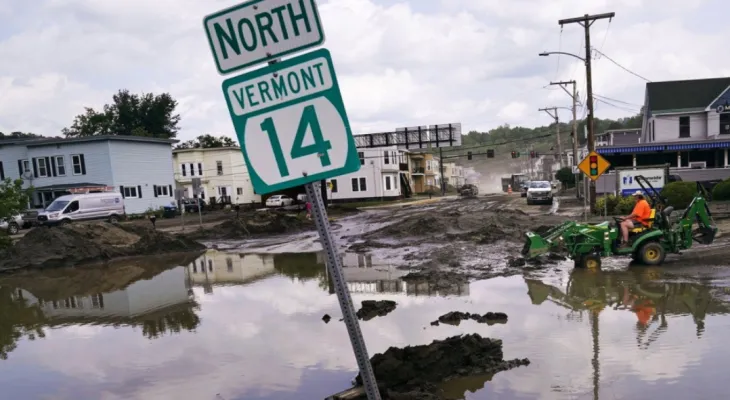Search here
Newspaper
Search here

Arab Canada News
News

Published: January 4, 2025
The American Chamber of Commerce and one of the largest trade unions for the oil and gas industry have filed a lawsuit against the state of Vermont over a new law requiring fossil fuel companies to pay their share of the damages caused by climate change over the decades.
Details of the law and the lawsuit
The law was passed in Vermont last year as the first U.S. state to adopt this approach, after suffering from catastrophic summer floods and damage caused by extreme weather. The law seeks to estimate the cost of climate change since January 1, 1995.
The lawsuit, filed in federal court on Monday, claims that the law violates the U.S. Constitution and conflicts with the federal Clean Air Act. The plaintiffs also argue that the law discriminates against large companies outside Vermont and violates domestic and foreign commerce clauses.
Tara Morisette, Vice President of the Litigation Center of the Chamber of Commerce, said:
“Vermont seeks to impose massive retroactive penalties on lawful out-of-state actions regulated under the Clean Air Act by Congress. This is illegal and violates the framework of the U.S. Constitution.”
Reactions
Anthony Irabino, an activist at the Conservation Law Foundation, described the lawsuit as an attempt by fossil fuel companies to “avoid responsibility for the damages caused by their products in Vermont and beyond.”
He added:
“More states are following Vermont's lead in holding major oil companies accountable for the recovery costs from disasters resulting from severe storms.”
Details of the law
The law stipulates that the state treasurer, in consultation with the Department of Natural Resources, shall issue a report by January 15, 2026, identifying the total cost of greenhouse gas emissions on public health, natural resources, agriculture, infrastructure, and the economy.
The model and its future prospects
The law is based on the “polluter pays” model, where major companies that emitted more than one billion metric tons of greenhouse gases between 1995 and 2024 contribute to a fund used to improve infrastructure such as drainage systems, update roads and bridges, and rationalize energy consumption in buildings.
This approach has sparked interest in other states like New York, which signed a similar law last December requiring major polluters to pay fines to support infrastructure projects addressing climate change.
Comments